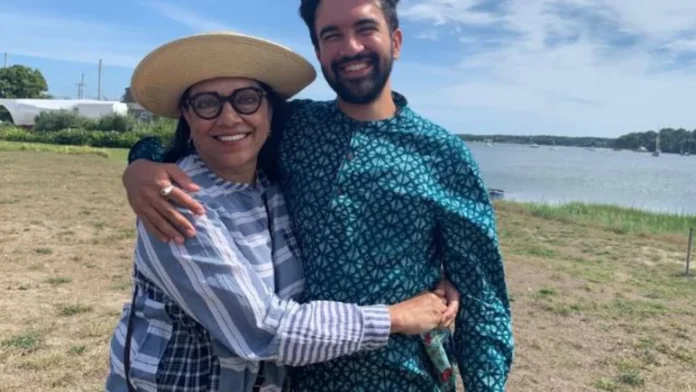In what is being hailed as one of the most stunning political upsets in recent New York history, Zohran Mamdani, a 33-year-old state assemblyman of Indian origin, defeated Andrew Cuomo, the veteran former governor, in the Democratic primary for New York City Mayor. With this win, Mamdani has positioned himself to become NYC’s first Muslim and first South Asian mayor.
The Shock Factor: Cuomo Falls, Mamdani Rises
Few expected the contest to be this close, let alone tilt toward Mamdani. Cuomo, a powerful political figure since the 1990s and three-term governor, entered the race with name recognition, institutional support, and deep-pocketed donors. Yet, his past — including his 2021 resignation over sexual harassment allegations — returned to haunt him, especially with younger, progressive voters.
Mamdani, who first entered politics in 2020 as a New York State Assembly member from Queens, built his campaign from the ground up, driven by grassroots organizing, clever digital media tactics, and a bold left-wing policy platform.
“Tonight we made history,” Mamdani declared at his victory party, flanked by his parents — filmmaker Mira Nair and postcolonial scholar Mahmood Mamdani — and his wife, Rama Duwaji. “New Yorkers stood up for a city they can afford.”
1. Visual Profile: Zohran Mamdani’s Rise
Background:
- Name: Zohran Kwame Mamdani
- Born: 1991, Kampala, Uganda
- Raised: New York City
- Ethnicity: Indian-Ugandan
- Religion: Muslim
- Profession: Housing counselor, community organizer, now politician
- Elected: New York State Assembly (2020) — District 36, Queens
Family:
- Mother: Mira Nair – Award-winning filmmaker (Monsoon Wedding, Queen of Katwe)
- Father: Mahmood Mamdani – Scholar of postcolonial studies, Columbia University
Political Journey:
- 2020: Wins Assembly seat as Democratic Socialist
- 2023–2024: Vocal on housing, transit, and social equity
- 2025: Wins NYC Democratic mayoral primary against Andrew Cuomo
2. NYC Mayoral Race 2025 – General Election Landscape
| Candidate | Party | Key Support Base | Status |
|---|---|---|---|
| Zohran Mamdani | Democrat | Youth, renters, progressives, South Asian & Muslim voters | Frontrunner |
| Curtis Sliwa | Republican | Conservatives, law & order voters | Challenger |
| Eric Adams | Independent | Incumbent advantage, centrists, some Black community support | Spoiler? |
| Andrew Cuomo | (Likely) Independent | Old guard Dems, moderates, labor unions | TBD |
Election Date: November 4, 2025
Voting System: Ranked-choice voting could play a huge role again.
3. Timeline: Indian-Origin Political Milestones in the US
| Year | Milestone | Description |
|---|---|---|
| 1956 | Dalip Singh Saund | First Indian-American elected to U.S. Congress (California) |
| 2004 | Bobby Jindal | First Indian-American elected to the U.S. House after Saund |
| 2010 | Nikki Haley | First Indian-American woman governor (South Carolina) |
| 2016 | Kamala Harris | Elected to U.S. Senate from California |
| 2020 | Kamala Harris | Becomes first woman, Black, and South Asian U.S. Vice President |
| 2025 | Zohran Mamdani | Wins Democratic primary for NYC mayor — could be first Indian-origin NYC mayor |
Election Snapshot
- Primary Date: June 25, 2025
- Turnout: ~1 million voters (despite record 39°C heat)
- Result: Zohran Mamdani defeats Andrew Cuomo
- Opponents in General Election:
- Republican: Curtis Sliwa
- Independents: Eric Adams (incumbent) and potentially Cuomo
Mamdani’s Strategy: Grassroots Over Establishment
Mamdani’s campaign borrowed playbooks from progressives like Alexandria Ocasio-Cortez and Bernie Sanders — but made it uniquely his own:
Key Policy Proposals:
- Citywide rent freezes
- Free public bus service
- Publicly run grocery stores to tackle food insecurity
- Police accountability (though his past support for “defund the police” drew fire)
Community Engagement:
- “Chai with Zohran” meetups
- Multilingual outreach (Hindi, Bengali, Urdu)
- Viral campaign videos mimicking Bollywood classics
- Door-to-door canvassing in neighborhoods like Jackson Heights, Crown Heights, and the Bronx
Controversies and Headwinds
Mamdani’s past progressive positions were a double-edged sword.
- His criticism of Israel’s Gaza policy triggered backlash from NYC’s influential Jewish community.
- His opposition to Indian PM Narendra Modi — particularly over the 2002 Gujarat riots — raised eyebrows among segments of the Indian diaspora.
- Conservative critics painted him as “too radical, too young, too inexperienced” for the city’s highest office.
Yet, these criticisms only reinforced his outsider appeal to an electorate weary of establishment politics and rising living costs.
Cultural and Demographic Significance
Mamdani’s victory has national implications:
- Identity at the center: As a Muslim immigrant, he unapologetically placed identity politics within a broader social justice framework.
- Diaspora appeal: His win resonates deeply within America’s South Asian and Muslim communities, especially the estimated 710,000 Indians in the New York metro area.
Notable lineage:
- Mother: Mira Nair, acclaimed filmmaker (“Monsoon Wedding”, “The Namesake”)
- Father: Mahmood Mamdani, noted Columbia professor of African and postcolonial studies
What Comes Next
Mamdani now heads into a multi-front general election against:
- Republican Curtis Sliwa (Guardian Angels founder)
- Independent Eric Adams (the current mayor)
- Possibly Andrew Cuomo again, as an independent
While the general election will be fiercely contested, Mamdani’s primary win marks a seismic shift in NYC’s political future and signals that progressive populism is very much alive in America’s biggest city.
Final Word
Mamdani’s victory is not just about generational change — it’s a statement that New York City politics is entering a new era, one shaped not by political dynasties but by community organizers, activists, and social media-savvy leaders who speak to the everyday struggles of working-class citizens.
“The city has changed — and our politics must too,” Mamdani said. “This isn’t just my win. This is all of ours.”






